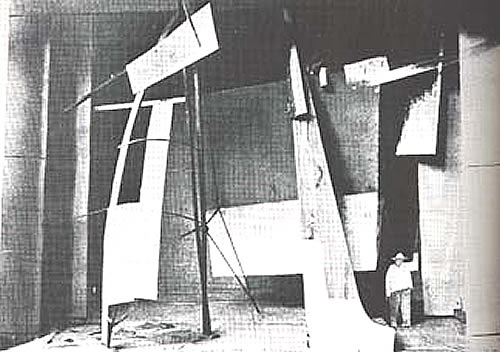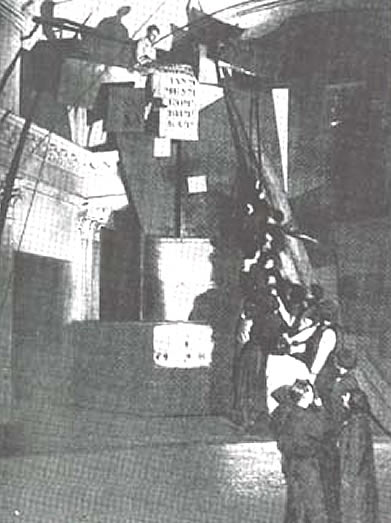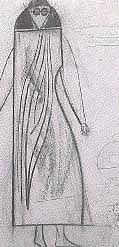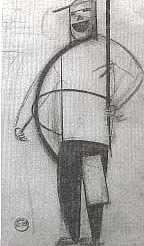
In 1923, Vladimir Tatlin
designed, directed, and starred in a performance of Velimir
Khlebnikov's play Zangezi that was presented by an amateur
troupe at the Museum of Artistic Culture in Petrograd. Khlebnikov
had died earlier in the year, and the performance was to be
a memorial to Tatlin's favorite poet. To Khlebnikov's construction
of words, where sound was the principle building element, Tatlin
attempted to find a counterpart in tangible construction, built
with a variety of materials in different surfaces and shapes.
According to the artist's conception, certain combinations of
colors and forms corresponded to certain sounds; light and costumes
also played an important role in the production. This photograph
shows Tatlin's maquette for the basic stage design. Note the
ways in which Tatlin's set grows out of his purely sculptural
concerns in
his relief of 1916.
 |
|
RIGHT: A scene from the original staging
of Zangezi. At the very top of the picture you can
see Tatlin
in the role of Zangezi.
BELOW: Sketches for costume designs
for the figures of "Woe" and "Laughter" from the
final scene of Khlebnikov's "Zangezi" as designed
by Tatlin in 1923 (click on images).
|
  |
|